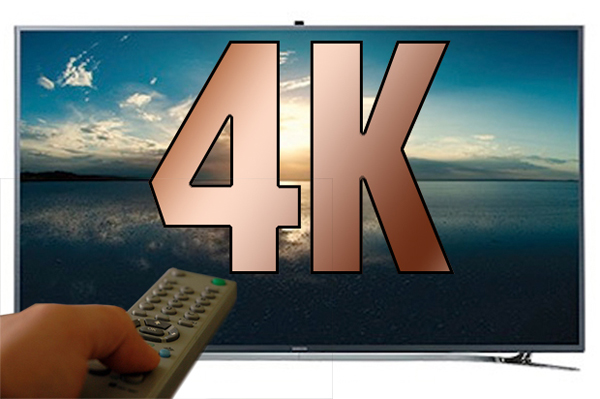Google Working On Its Next-Generation VP10 Video Codec
Get Tom's Hardware's best news and in-depth reviews, straight to your inbox.
You are now subscribed
Your newsletter sign-up was successful
Google has begun working on its next-generation VP10 codec, as shown by some recent commits to the public libvpx repository, where Google adds new code to its open source VP9 codec.
Google got the VP8 codec with the acquisition of On2 Technologies back in 2010, which it later open sourced. However, VP8 was already years behind in development compared to the standard proprietary H.264 codec. By the time VP8 became about as good, H.264 was already ubiquitous, not just in software, but also in hardware.
VP9 also arrived a little late compared to the proprietary HEVC, but not nearly as much as VP8 did. Google uses VP9 for its YouTube service now, and some chip makers have also adopted VP9 decoding in hardware. HEVC is a little further ahead in hardware support, but it's also rather far from being ubiquitous, which means most people can't get efficient 4k video streaming just yet.
HEVC also seems to have increasingly more patent issues tied to it lately. This could not only hinder its adoption, but may even kill it for applications and services that are free or open source, at least according to Cisco.
With the IETF working on a next-generation open source and royalty-free standard called NETVC, it seems like the right time for Google to push its own next-generation codec as well, perhaps as a candidate for NETVC. Mozilla and Xiph's Daala video codec, as well as Cisco's recently announced Thor, are already part of the candidate list.
Google hasn't yet said anything about VP10 becoming an NETVC candidate as well, but it's still very early in its development life. Ultimately, the IETF may not choose one of the multiple candidates to become NETVC, but could combine the best parts of all of them to create one great next-generation codec.
Having multiple candidates that all strive to be royalty-free and patent unencumbered should also greatly reduce the chance of using code that infringes on someone else’s patents. The IETF could choose the parts from the candidates that are least likely to be found infringing, in order to create a legally untouchable codec that anyone can freely use with no restrictions.
Get Tom's Hardware's best news and in-depth reviews, straight to your inbox.
Follow us @tomshardware, on Facebook and on Google+.
Lucian Armasu is a Contributing Writer for Tom's Hardware US. He covers software news and the issues surrounding privacy and security.
-
InvalidError This is what happens when you allow the patenting of mathematics and mostly obvious incremental improvements: money getting wasted on duplicated work mostly to derive alternative methods of achieving similar or better results to avoid patent licenses.Reply -
PhilFrisbie Only the ignorant or greedy fail to grasp the fact that most of the algorithms in codecs is simply math, and therefor patents should never be granted.Reply -
Quixit Royalty-free and patent unencumbered is the only way forward for any type of codec. I look forward to a future where it would be insane to suggest a codec that wasn't become any kind of industry standard.Reply
P.S. I also agree that software patents are nonsense.Although I live in Canada, where software is explicitly not patentable so I'm not complaining. -
sir_anders Sometimes its easy to forgot that open source and standards are never about the openness, its about power and money. That's why google will never take the same path as mozilla, nor apple, nor microsoft in HTML 5, as the standards are codec-agnostic. Even MPEG-DASH, that is a true candidate to get rid of all the browser plugins (might it be silverlight or flash) have not agreed on codecs, rather the format for how the bits and bytes are been delivered.Reply
A number of attempts has been made to standards, everyone remembers the fight for next-gem DVDs, even how DVD+ and DVD- came to live.
If google creates a codec no one else will support it, and the other way around. we don't have a standardization body that is wrong enough to take the burdon to create the standard without the help of the companies with the money and resources, this is just how it is, and always will be. -
hst101rox ReplyThis is what happens when you allow the patenting of mathematics and mostly obvious incremental improvements: money getting wasted on duplicated work mostly to derive alternative methods of achieving similar or better results to avoid patent licenses.
Similar to Ford and Chevy trying to achieve the same efficiency as Toyota's hybrid synergy drive on their hybrids but with different designs, until Toyota released the patents for their 2nd gen design.
It can really hurt widespread adoption of technology. -
bit_user Is it true that Google's codecs use no patented techniques? I thought Google did have patents on some of the techniques and merely offered for others to use their codecs, freely.Reply
I'm not sure you can do anything competitive, in video compression, without stepping on somebody's patent. Love it or hate it, MPEG-LA is the best solution to that problem, thus far. That said, I haven't yet read much on the patent issues affecting HVEC. Did some patent trolls try to go after them?
